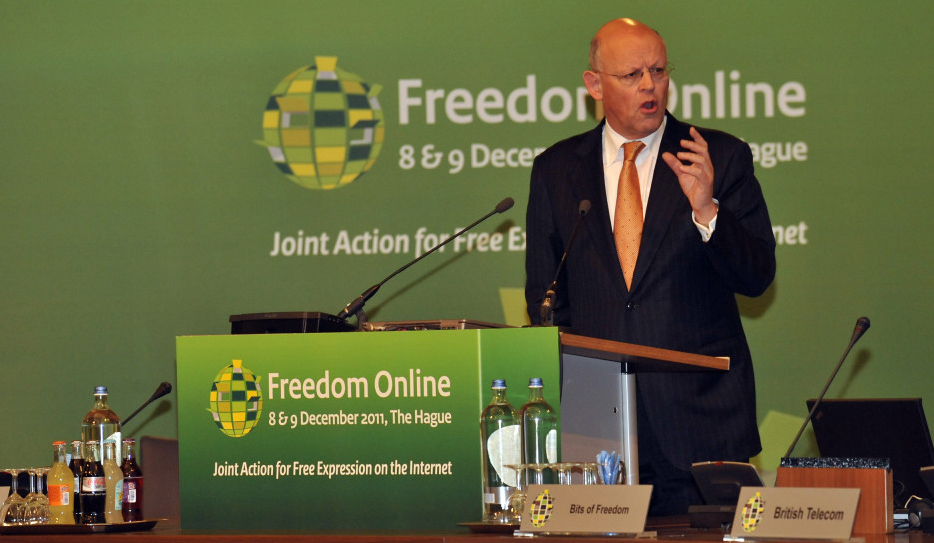The first Freedom Online Conference was held in 2011 and hosted by the Dutch Foreign Minister Uri Rosenthal in The Hague.

Together with participants from governments, international organisations, private sector and civil society from around the world, the Conference discussed proactive steps states could take together to stand up for Internet freedom.
Guided by the principle that human rights have the same protection online as offline, the Conference aimed to foster a global conversation based on shared principles to preserve an Internet that is open and free while also interoperable, secure, and reliable.
The key purpose of the Conference was to facilitate a global dialogue about the responsibilities of governments from around the world to actively and continuously further human rights online, in close engagement with the private sector, civil society, bloggers and representatives of international organizations.
Participants acknowledged that the protection of Internet freedom is a global responsibility that requires truly global cooperation between countries and between stakeholders.
Based on their shared commitment to respect human rights and fundamental freedoms online, 15 countries established the Freedom Online Coalition by jointly endorsing the outcome declaration “Freedom Online: Joint Action for Free Expression on the Internet”.
They committed themselves to set up an informal diplomatic space for governments to regularly and consistently share ideas, best practices, resources and support for projects, for online freedom. Further, the signatories committed themselves to:
- share information on potential violations of freedom of expression and other human rights online,
- to work in close engagement with other relevant stakeholders to protect and advance these rights,
- cooperate to support individuals in exercising their human rights through the Internet by engaging with other governmental and non-governmental parties,
- promote freedom of expression, association and peaceful assembly with respect to the Internet through diplomatic activities both with individual countries and regional organizations,
- encourage the adoption of practices, policies and statement of principles that address concerns to the export and misappropriation of technologies for repressive ends, appropriation of personal data and censorship around the world.
